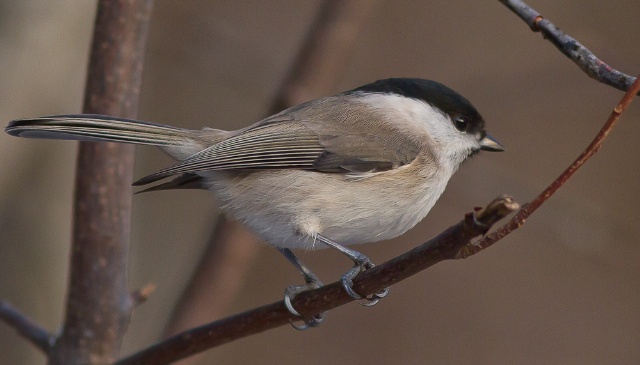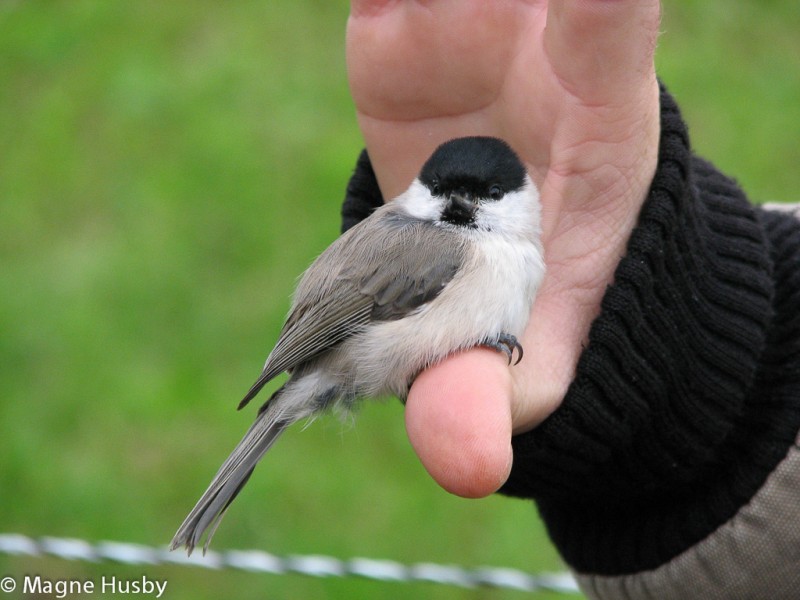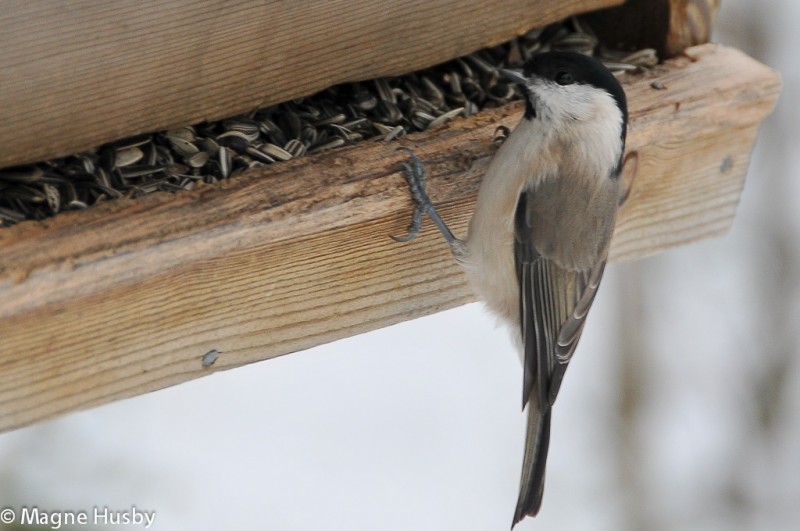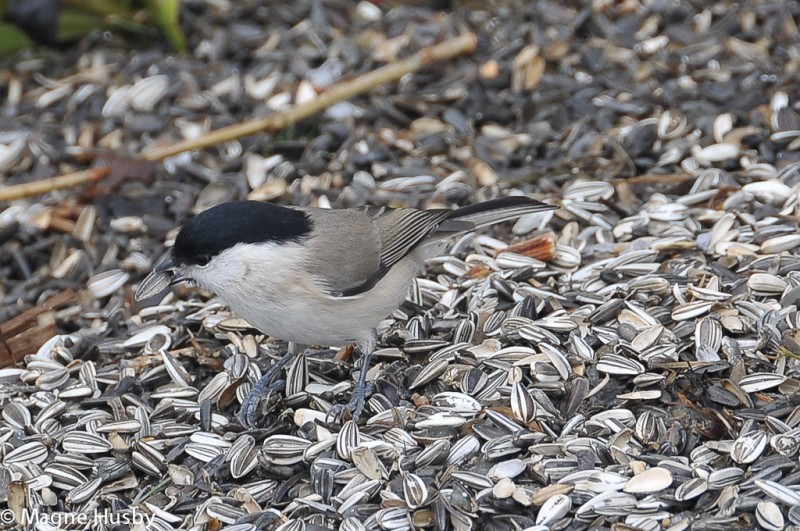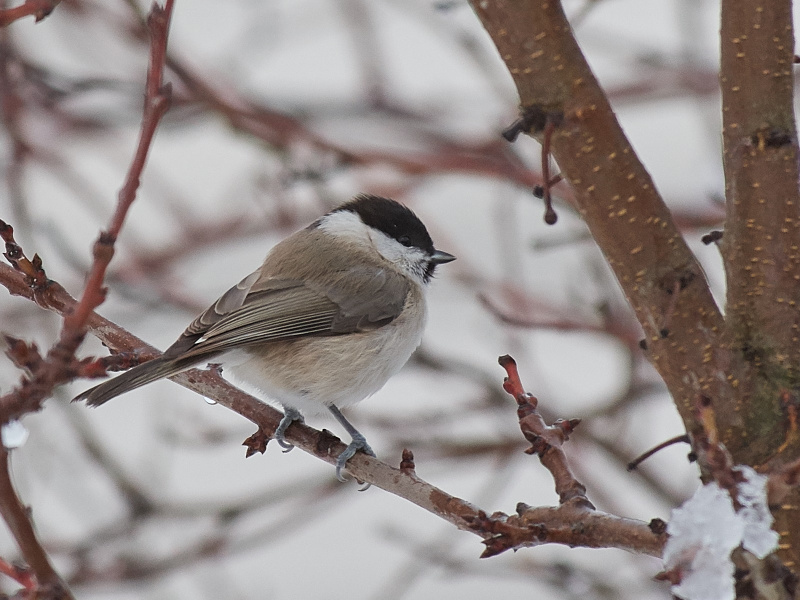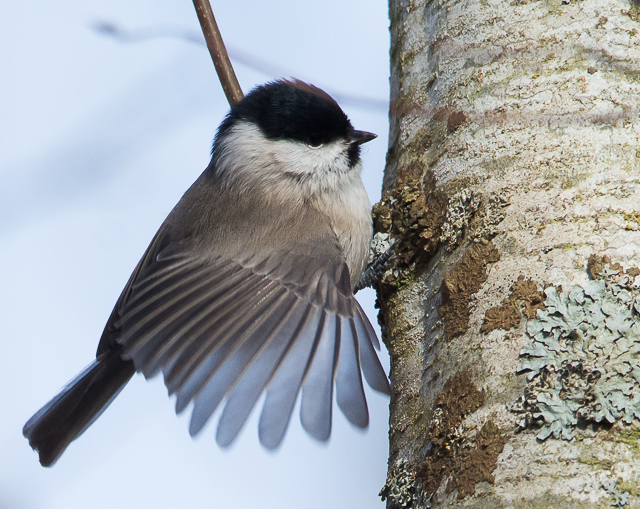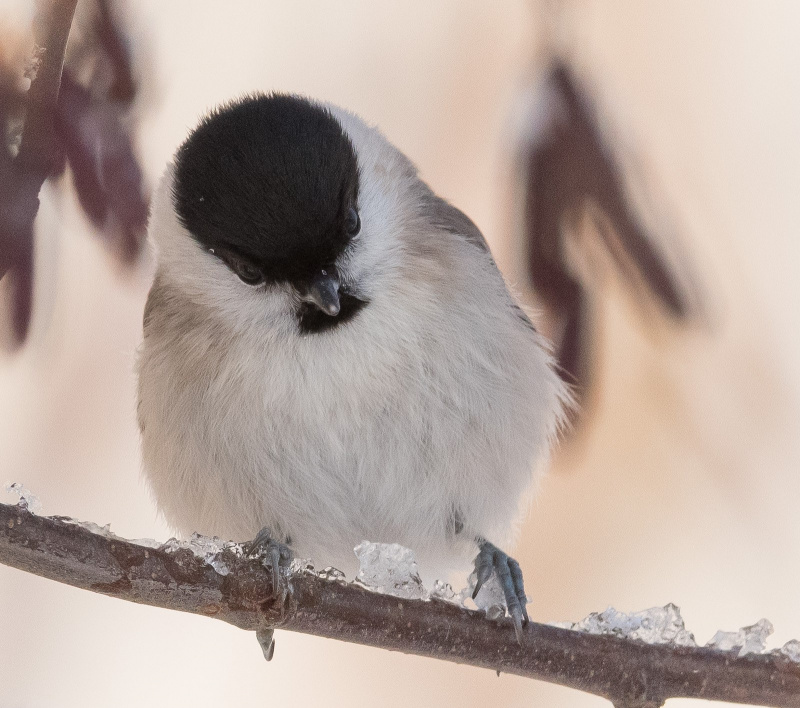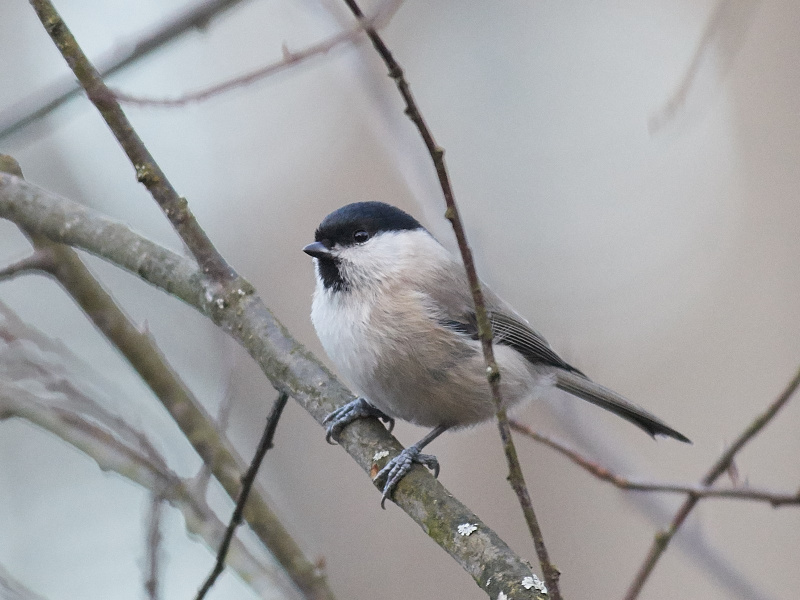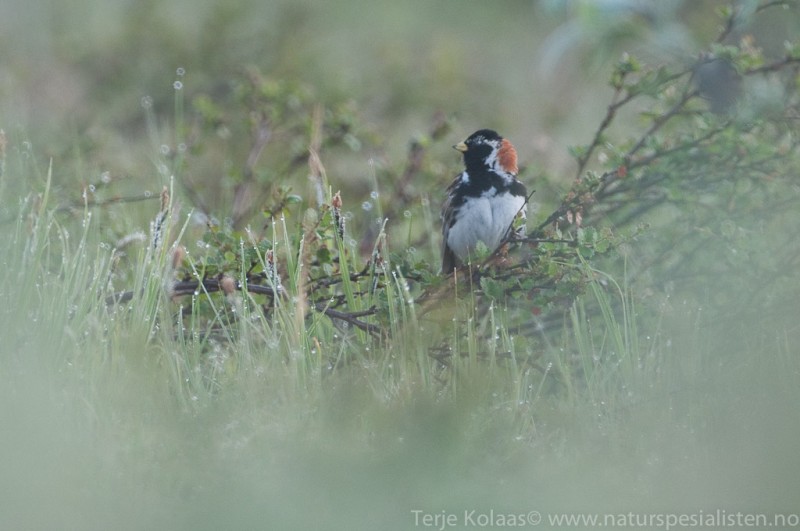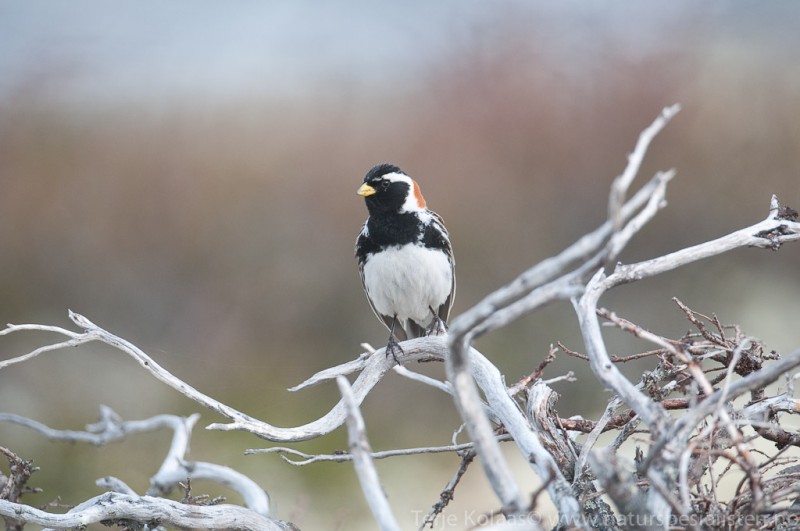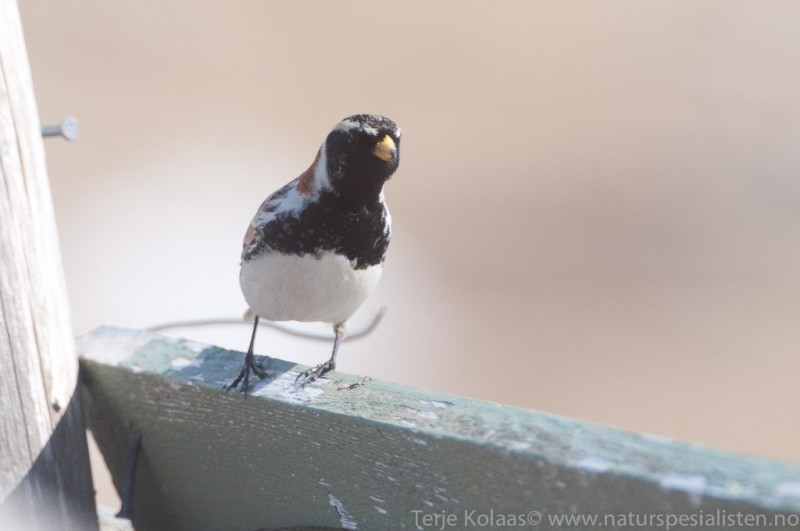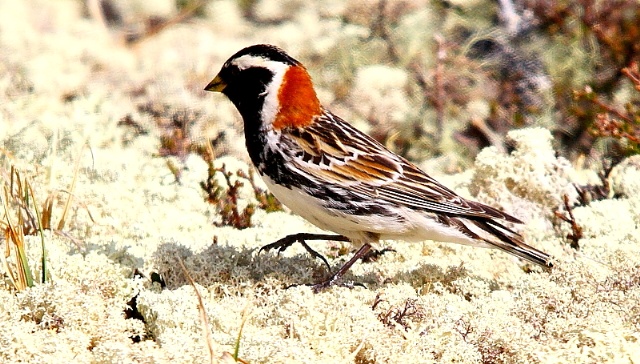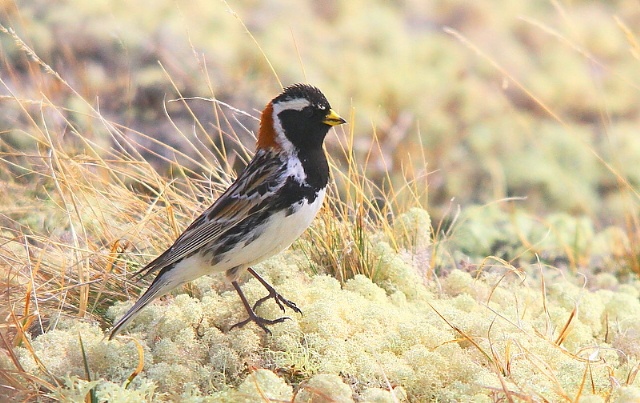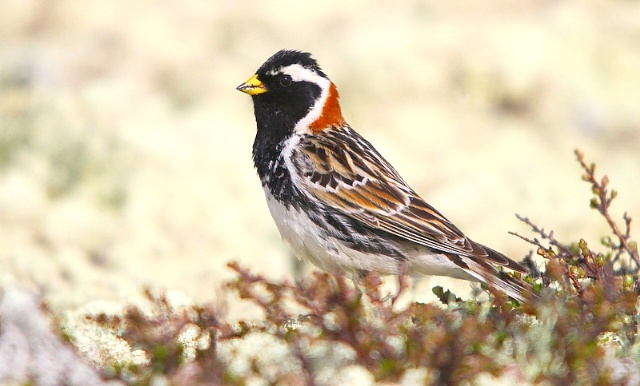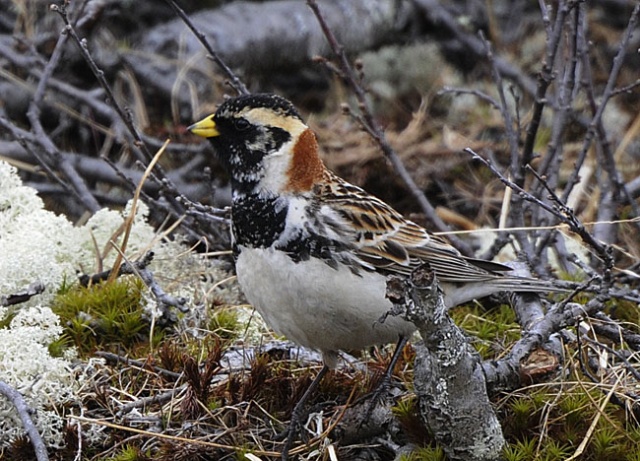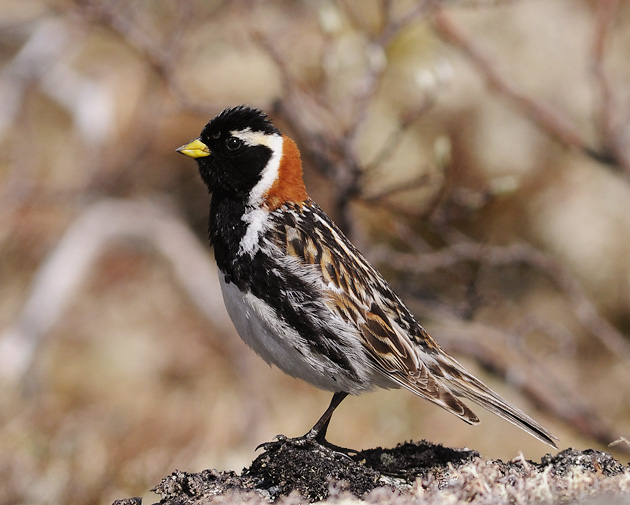Marsh Tit (Poecile palustris)
Lapland Longspur (Calcarius lapponicus)
Glossy black hood and plain, pale brown upperparts. Cheeks brownish towards nape. Small, rounded, black bib. Small pale spot on base of upper mandible (often surprisingly visible, despite small size). Very similar to Willow Tit, especially British sub.sp. Willow tit has bigger head, not so glossy cap, whiter cheeks, larger bib and pale wing panel.
Sound:Most easily identified by sound. Especially in areas where plumage is less distinct compared to Willow Tit, like in Britain. Most typical call an explosive, sneeze-like "pee-choo", starting high-pitched and ending on a lower note.
Also calls "chaa chaa chaa" but not so nasal and drawn-out as willow tit. Song: A simple one or two note call repeated in series. Usually rising slightly in pitch, and with a "liquid" quality. Sometimes also a ringing, vibrating song. Generally has a much sharper tone than the soft song of willow tit. Other calls: Various high pitched sound. Often quite explosive.
Distribution:
Wikipedia: map (se also Xeno-canto below)
Ecology:Birdlife ecology
Links:
Observation.org Latest observations
Image search Flickr NB! May give other species
CCLarge and rather heavy bunting with yellow bill in all plumages. Head of breeding male brightly tricoloured in black, white and warm, rufous brown. Female similar to male, but much duller coloured, and with black parts speckled. All adults show rufous hind-neck. Juveniles show rufous greater coverts and may be confused with Reed Bunting. Differs from RB in yellow bill, dark spots on chest and cleaner markings on cheeks. Often runs along the ground like a mouse.
Sound:Song: a short, creaky, brittle phrase, rich in harmonics; "kril-trrlrtt-ti-trlllkrlltrrt". Somewhat reminiscent of Horned Lark, but without its hesitating intro. In form a bit like Snow Bunting, but much less clear tones. Call: A Snow Bunting-like "prrrrit", but tone harder. Also a Snow Bunting-like "pjuu". Other sounds: soft, whistling calls reminiscent of Bullfinch, but with richer harmonics.
Song:
Distribution:
Wikipedia: map (se also Xeno-canto below)
Ecology:Birdlife ecology
Links:
Observation.org Latest observations
Image search Flickr NB! May give other species
CC
 English
English Albanian
Albanian
 Armenian
Armenian
 Bulgarian
Bulgarian
 Catalan
Catalan
 Croatian
Croatian
 Czech
Czech
 Danish
Danish
 Dutch
Dutch
 Finnish
Finnish
 French
French
 Georgian
Georgian
 German
German
 Greek
Greek
 Hungarian
Hungarian
 Italian
Italian
 Latvian
Latvian
 Lithuanian
Lithuanian
 Macedonian
Macedonian
 Norwegian
Norwegian
 Polish
Polish
 Portuguese
Portuguese
 Romanian
Romanian
 Russian
Russian
 Sami : Lule sami
Sami : Lule sami
 Sami : North sami
Sami : North sami
 Sami : South sami
Sami : South sami
 Scientific names
Scientific names
 Serbian
Serbian
 Spanish
Spanish
 Swedish
Swedish
 Ukrainian
Ukrainian


